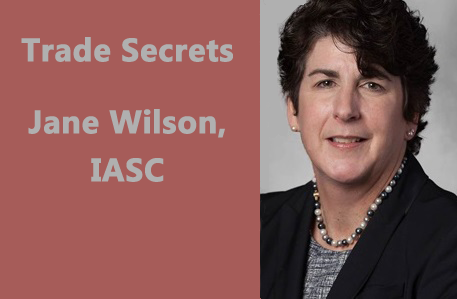Unlike the other recent enforcement actions that have been initiated at the state level against dietary supplement products, the California Attorney General’s office probably won’t be the source of any legal action against aloe vera product marketers. Enforcement actions under the new Proposition 65 listing are more likely to be initiated by private plaintiffs targeting marketers who they contend have not provided the necessary Proposition 65 warnings for their products. Once a substance is added to the Proposition 65 list, marketers have one year to determine if a warning needs to be provided for their product.
The International Aloe Science Council (IASC) intends to use this next year to educate consumers and other impacted parties about the difference between the Proposition 65 listed chemical and the aloe vera ingredients in the dietary supplement, beverage and personal care products they use. Only products that contain “Aloe vera, non-decolorized whole leaf extract” will need to provide warnings (if such products even exist), but many consumers will simply see the term “aloe vera” on the Proposition 65 list and may not understand how the listed chemical is different from the aloe vera ingredients in the products they use. Absent from the final Proposition 65 listing is additional detail on which aloe vera ingredientsare notincluded, namelyAloe veradecolorized whole leaf extract,Aloe veragel,Aloe veragel extract, andAloe veralatex. These aloe vera ingredients are specificallynot coveredby the Proposition 65 listing anddo not requirea Proposition 65 warning.
IASC manages a certification program to ensure the content and purity of products derived from aloe vera. Consumers wishing to confirm that they are purchasing aloe vera products that do not contain “Aloe vera, non-decolorized whole leaf extract” can look for the IASC seal as an indicator of a compliant product. IASC maintains a list of companies and products that are actively participating in the program and have been analytically proven to meet the program’s standards (seewww.iasc.org).
So how did aloe vera come into this Proposition 65 spotlight, given this is a botanical that has been widely used by humans for nutritional and medicinal purposes for thousands of years? For the membership of the IASC, this is a story that has been slowly unfolding since 1999 when the National Cancer Institute (NCI) nominated “aloe vera gel” for a National Toxicology Program (NTP) study on the basis that this chemical is widely used in dietary supplements and cosmetic products (64 FR 36704 [July 7, 1999]). The premise was that many consumers are exposed to aloe vera gel in the products they ingest or use topically, and it lacked sufficient toxicity information to support those uses in the eyes of those that evaluated the nomination.
Instead of “aloe vera gel,” NTP ultimately selected “Aloe vera, whole leaf extract (native)” as the test substance for the two-year carcinogenicity studies it performed since it contained all of the aloe vera whole leaf constituents. Following release of the draft NTP technical report (NTP TR 577), IASC advocated for a more precise description of the test substance to differentiate it from the aloe vera ingredients typically used in consumer products. In the August 2013 NTP study report (NTP TR 577), the description was finalized as a “non-decolorized whole leaf extract ofAloe barbadensis [sic] Miller (Aloe Vera).”
The NTP study of this substance may have served to identify “Aloe vera, non-decolorized whole leaf extract" as a carcinogenic hazard in laboratory rats, but the utility of that finding is limited if human exposure to this substance does not actually occur. For IASC members and the companies that participate in the IASC certification program, this is an unpurified substance that has little relevance for aloe vera products in today’s marketplace. That’s the message IASC will be carrying forward so that California consumers can continue to purchase aloe vera products with confidence.WF
 Jane Wilson is the executive director of the International Aloe Science Council (IASC). She brings to this role over 20 years of experience developing cooperative relationships with representatives of industry, trade associations, regulatory agencies, advocacy groups, and other stakeholders.
Jane Wilson is the executive director of the International Aloe Science Council (IASC). She brings to this role over 20 years of experience developing cooperative relationships with representatives of industry, trade associations, regulatory agencies, advocacy groups, and other stakeholders.Published in WholeFoods Magazine Online, 12/22/15









